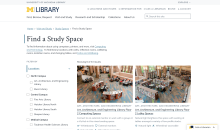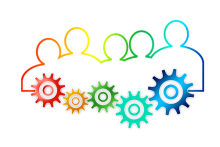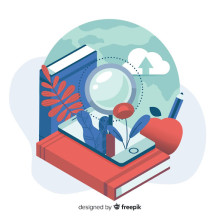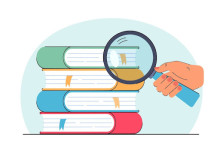Reports, stories and reflections from U-M Library assessment practitioners.
Tiny Studies

Posts in Tiny Studies
Showing 1 - 10 of 74 items

- Emma Brown
Find a Study Space is a brand new feature on the library website that launched in August 2025, improving our existing study space content and providing students with a new way to explore library study spaces. Learn about our research and design process and some of the key findings we discovered that informed the final product.

- Rachel Hoster
What do library users want and need when they contact the Ask a Librarian chat service? This post describes a project to design and deliver a survey to gather information on how the library's reference service is meeting community needs. Survey results identified both demographic and service-oriented trends.

- Alyson Marie Palmquist
In 2023, the U-M Library conducted its first comprehensive survey across students and employees. This blog post covers my specific research exploring the experiences of people with disabilities in the libraries, and their struggles with accessibility by analyzing data from the campus-wide survey. The goal of this research was to reveal struggles people with disabilities are facing in the libraries. By improving the library spaces with accessibility in mind, everyone – not just those with disabilities – benefits.

- Craig Smith
Many employees in the University Library at the University of Michigan are enthusiastic about using data to inform their work, and have used assessment methods to gather and analyze data. The library has an assessment strategy that is designed to guide this type of distributed assessment activity, so that people feel supported and successful in gathering, analyzing, and making sense of data. One critical piece of the assessment strategy is the Assessment Special Interest Group (SIG). The Assessment SIG provides the library’s assessment practitioners with regular opportunities to gather -- in person and online -- to share assessment projects in all phases, and to get peer support and feedback on assessment work. This blog piece provides more information about the role of the Assessment SIG in supporting solid, connected assessment in the library.

- Ben Howell
What are the main characteristics of search queries submitted from the “What can we help you find” search in the lib.umich.edu homepage, and how relevant are results in our U-M Library Search “Everything” results? Learn how our small team gathered, categorized, and analyzed queries, and their results to reveal trends and insights from search query behaviors that will help us improve people’s experience finding promising materials in the Library.

- Denise Leyton
In April 2023, the U-M Library opened a newly renovated floor, the Clark Commons, on the 3rd floor of the Shapiro Library. During the first year the Clark Commons was open (April 2023-May 2024), we collected a number of data points to assess whether the design goals for the public spaces on the floor were being met and to try to capture use trends. Throughout this initiative, a combination of qualitative and quantitative methods were used to capture both attitudinal and behavioral data in order to document lessons learned from this renovation that could be applied during future renovations.

- Suzan Karabakal
This blog post explores the challenges faced by novice users of the University of Michigan's Library Search interface, drawing on user research conducted with undergraduate students and librarians. The research aimed to understand how students approach library searches, to identify their pain points, and learn how they navigate the Everything results page. By gaining insights into these areas, the research aimed to identify opportunities for improvement and inform the design of more user-friendly library search tools.

- Sarah Kathleen Barbrow
This blog post summarizes a quick, low-tech, and timely way to assess your instruction. I write about my version of a “one minute essay” adapted as a feedback form on slips of paper, and how I use the responses to circle back with the students and faculty after the class. I reflect on how this approach, which I’ve used over the past ten years, has changed my instruction and allowed me to be more receptive to all kinds of feedback.

- Brandi Borkosky
The University of Michigan Press sought to better understand what its monograph authors care about when choosing a publisher and their experiences in being published. A survey completed in Fall 2024 reveals insight into scholarly publishing trends and what authors value in working with a university press.

- Karen A Reiman-Sendi
As we approach five years since the drastic shutdown and isolation techniques due to the COVID-19 pandemic, it seems appropriate to reflect on an assessment project conducted during 2020-2021. As librarians and students attempted to pivot to an all online learning and teaching experience, research service providers quickly needed to know more about our research consultation service. Struggling with a crisis, we also learned how to conduct assessment work in sensitive and empathetic ways.